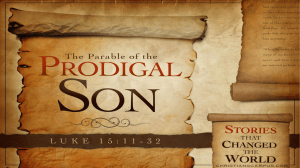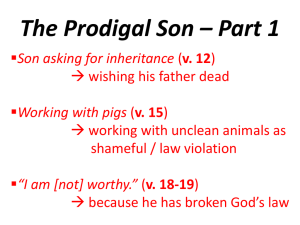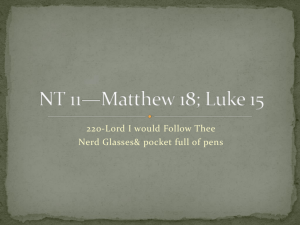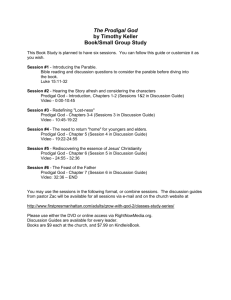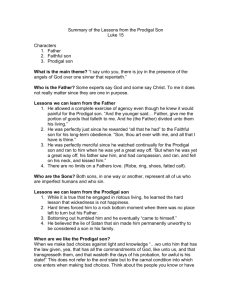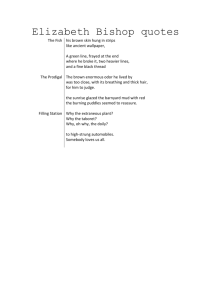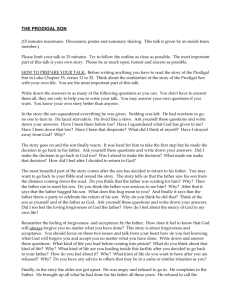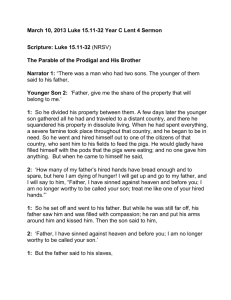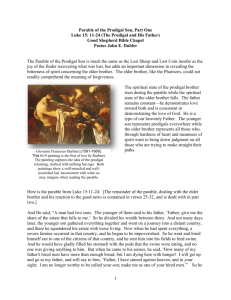Alex Yoo - Literacy Narrative of Luke 15
advertisement
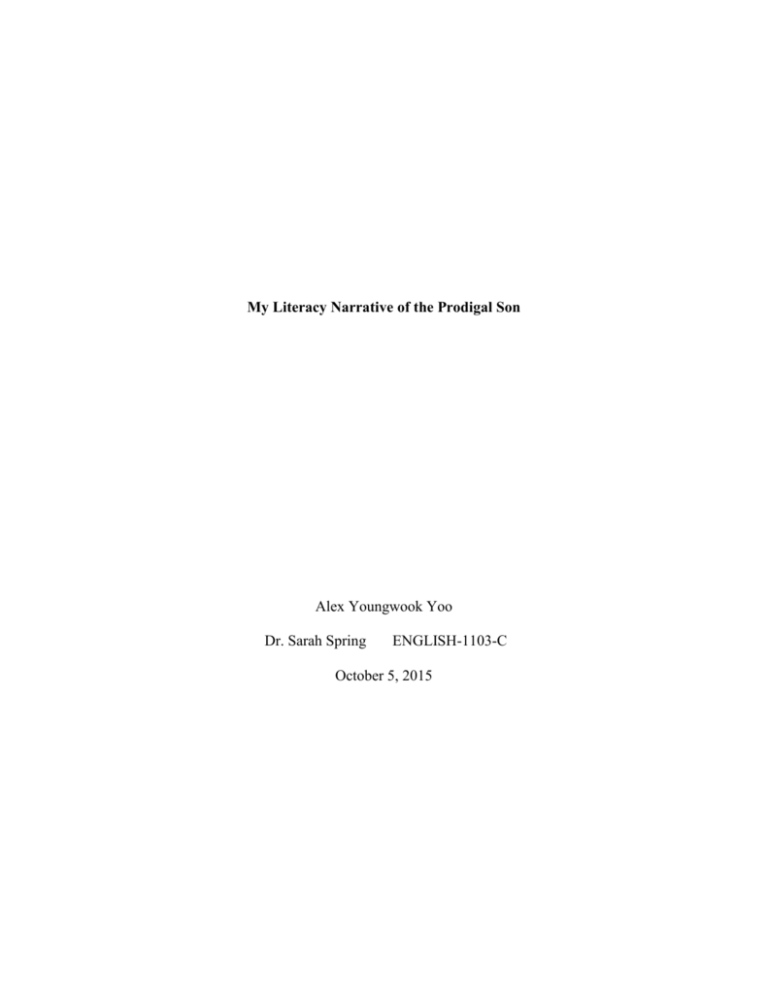
My Literacy Narrative of the Prodigal Son Alex Youngwook Yoo Dr. Sarah Spring ENGLISH-1103-C October 5, 2015 My Literacy Narrative of the Prodigal Son In my junior year in high school, I dedicated my life to Christ. With this dedication, I began to scrutinize myself and saw some areas that needed to be fixed. I was especially frustrated with my thoughts of insecurity and inferiority. For instance, when fellow students in the youth group became passionate for God, rather than being happy for them, I would have this underlying fear that somehow they might surpass me as a Christian or receive more favor from God than I would. I struggled to find a solution to this inner struggle until one night when I read a biblical parable from Luke. The interaction between the older son and his father in the parable of the prodigal son in Luke 15 revealed to me that God’s love cannot be earned through performance but rather to be received through faith and helped me to overcome my insecurity. That particular evening, I was praying to God fervently to help me with my unhealthy insecure thoughts. Soon, I distinctly heard in my heart, "Read Luke 15." I was bit skeptical at first, since I had no clue what was in that chapter, but I decided to open up my Bible. The chapter contained Jesus’ famous parable of the prodigal son - a story of a father who shows his great, merciful love to his prodigal younger son who returns home after licentiously squandering all his inheritance. However, as I read, my eyes were drawn to a character who remains on the sidelines: the older brother. He refuses to attend the festival held to celebrate his brother's return. He was angry at his father's favor and his act of mercy, saying that he had obediently worked many years like a slave for his father but received not even a goat. For him, his father’s abundant love shown toward his younger brother was unjustifiable and unreasonable in comparison because he had done 1 2 absolutely nothing to earn it or to deserve it. Then, it dawned on me that I was carrying this older son’s identity mindset: that of a slave and not of a son. He was working for the father's approval rather than from the father's love. In other words, he was trying to earn love. Similarly, I was ignorantly and subconsciously accepting a lie that in order to receive the love of my heavenly Father, I have to earn it. Such thinking led me to match up my performance against other believers. Thus, I had to outperform others spiritually and become the best of the bunch. With this thought in mind, I was viewing my brothers and sisters as my competitors. The father, in response to his angry son’s attitude, says to him, “Son, you are always with me, and all that is mine is yours” (Luke 15:31).1 In saying this, the father first and foremost affirms to his older son that he is indeed his son and not his slave. Furthermore, the father assures him that he is aware of his son’s presence and is willing to share everything with him as an heir. This one line of affirmation struck my heart as if God were saying it to me. I realized that God identifies me as His son and has promised to give the same love for me as He gives to others, apart from my performance. Reading this portion of the prodigal son led me to tearfully repent of trying to compete with others and earn God’s love. As time went on, knowing this precious truth about the Father’s love has helped me become free from my insecurities. 1 I have used the ESV translation throughout this paper, unless otherwise noted. Bibliography 3
